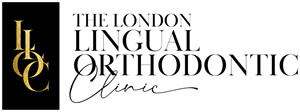The number of people falling prey to the seductive marketing of online direct-to-consumer braces is increasing and so are the problems arising from transacting with a remote company rather than a named clinician.
This is reflected in an updated statement from the General Dental Council (GDC). The reason, I suspect, that the GDC is re-issuing its statement can be found in the 2020 report from the Dental Complaints Service (DCS). This reveals that the number of complaints around ‘remote’ orthodontics advertised via online platforms continues to grow.
And the experience of one unhappy patient forms the basis of a DCS case study. This is a summary of the patient’s experience: After signing up for braces and entering into a finance agreement, the patient visited a scanning centre for a scan of her teeth. A treatment plan was created and signed off by a dentist and the treatment began. The patient was unhappy with the result however because she felt there had been no change.
The company was reluctant to provide a refund, suggesting she embark on a second course of treatment at a reduced rate. It also refused to give her the full name of the dentist who signed the treatment plan. The patient complained to the DCS and, to cut a long story short, the company eventually refunded the treatment cost and cancelled the finance agreement.
I am shocked by several aspects of this case study, outstandingly:
- The patient did not know the name of the dentist who provided the treatment plan
- Without the intervention of the DCS, the patient would not have had a refund and their credit rating might have been jeopardised due to the finance agreement not being cancelled.
In its updated statement on direct-to-consumer braces, the GDC says it welcomes innovation in dentistry that promotes ‘safe care and improved services for dental patients.’ How is this possible in the context of braces ordered online? Yes, innovation and technology have made a monumental difference to orthodontics. I know I am smitten by a number of aspects, especially my orthodontic software, which enables me to fine-tune the results I give my patients to a fraction of a millimetre.
But, like the editor of the British Dental Journal who has written an editorial on the topic, I regret the kind of technology that enables patients to minimise contact with a trained clinician, can direct-to-consumer braces be described as healthcare? Not in my book. Orthodontics is a specialist treatment and this should mean a high level of professionalism and attentive service, which, it goes without saying, I am committed to delivering. By contrast, and by definition, direct-to-consumer orthodontics keeps contact with a professional to a minimum. In an era when we can do so much at home online, it might seem clever and seductive, but this is not progress. Care, among many other things, means spending time with our patients.














